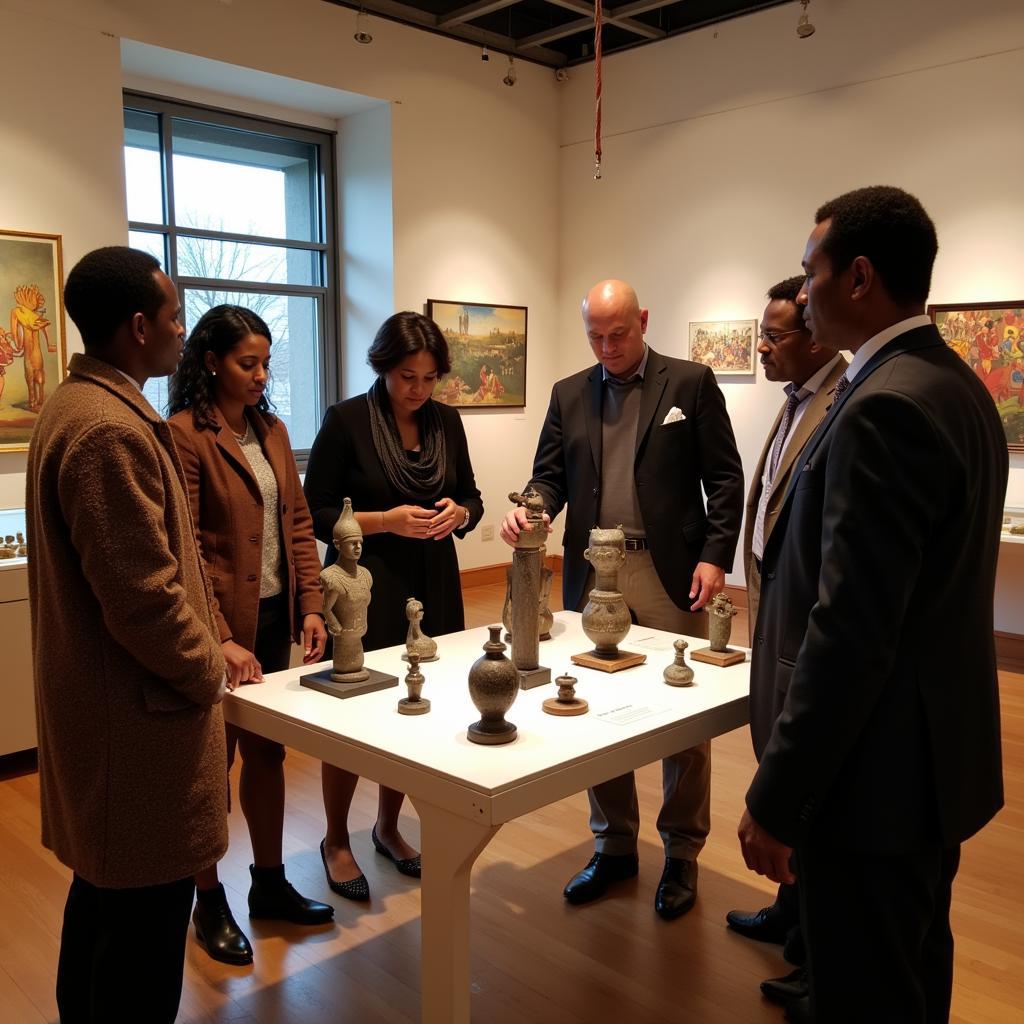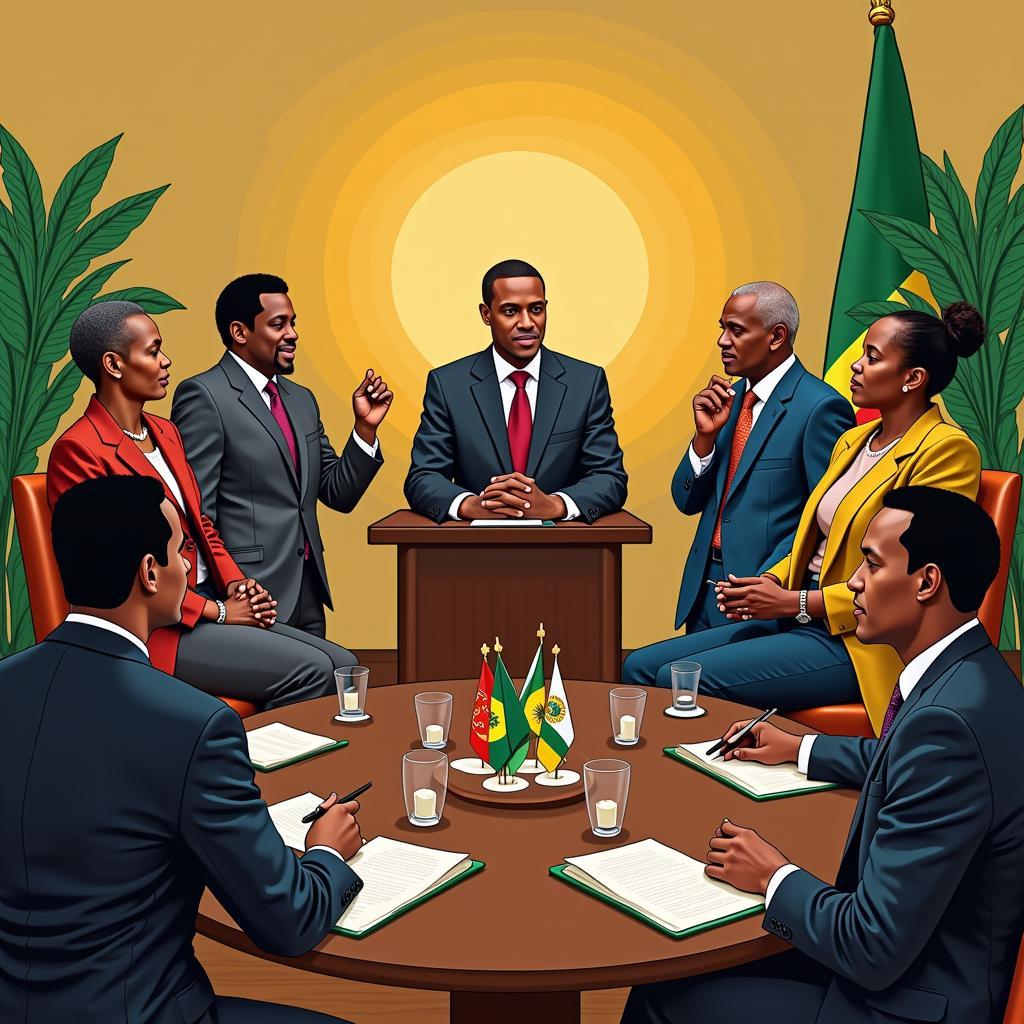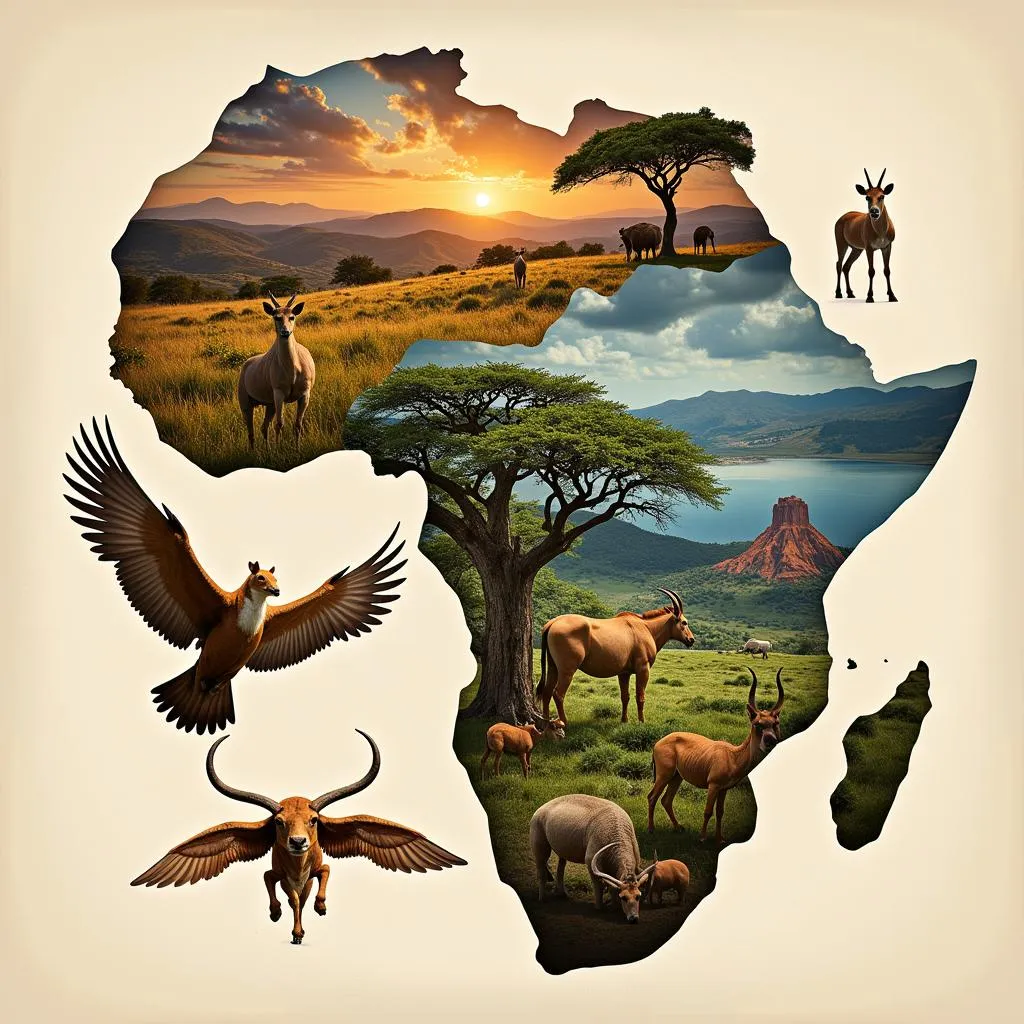African Art Items in Europe and Americas: Amnesty International’s Perspective
African art items are scattered across museums and private collections in Europe and the Americas, raising complex questions about cultural heritage, repatriation, and the legacy of colonialism. Many of these objects arrived through dubious means, prompting discussions about ownership, ethical display, and the role of institutions like Amnesty International in advocating for their return.
The Complex History of African Art in Western Collections
The presence of African art items in Europe and the Americas is inextricably linked to colonialism and its exploitative practices. For centuries, artifacts were taken from their original contexts, often through looting, forced sales, or under duress during colonial rule. These objects, imbued with cultural and spiritual significance, were stripped of their meaning and displayed as trophies or curiosities in Western museums. This practice not only disrespected African cultures but also perpetuated harmful stereotypes and erased historical narratives. Understanding this history is crucial to addressing the present-day ethical dilemmas surrounding these collections.
Many of these objects were not simply “collected” but seized during military expeditions, “scientific” explorations, or missionary activities. The power imbalance between colonizers and colonized populations made it virtually impossible for African communities to prevent the removal of their cultural treasures. This historical context is vital when considering the calls for repatriation. It’s not just about returning objects; it’s about rectifying historical injustices and acknowledging the enduring impact of colonialism.
Amnesty International’s Role: Advocating for Human Rights and Cultural Heritage
Amnesty International, primarily known for its work on human rights, also recognizes the interconnectedness of cultural heritage and human dignity. The organization has increasingly highlighted the importance of respecting and protecting the cultural rights of indigenous peoples and marginalized communities worldwide. While not directly involved in the physical repatriation process, Amnesty International lends its voice to advocate for policies and practices that support the rightful return of cultural property. Their focus is on ensuring that repatriation processes are conducted ethically, transparently, and with full respect for the affected communities. This can involve raising awareness about the issue, conducting research, and putting pressure on governments and institutions to engage in meaningful dialogue with African nations and communities.
The organization also emphasizes the need for comprehensive provenance research. Understanding the specific circumstances under which these objects left Africa is essential to determine rightful ownership and inform repatriation efforts. Amnesty International advocates for open access to museum records and archival materials to facilitate this crucial research.
What are some of the challenges surrounding repatriation?
Repatriation is a complex process involving legal, logistical, and ethical considerations. One of the major challenges is establishing clear legal frameworks for the return of cultural objects. Different countries have different laws and regulations regarding ownership and repatriation, making it difficult to navigate the legal landscape. Furthermore, there are questions about the capacity of some African nations to properly care for and preserve repatriated objects. Investing in infrastructure and training for museums and cultural institutions in Africa is crucial to ensuring the long-term preservation of these treasures.
Another challenge is identifying and engaging with the appropriate communities or individuals who have rightful claims to the objects. In some cases, it can be difficult to determine the precise origin of an object or to identify the descendants of the original owners. Community consultation and collaboration are essential to ensure that repatriation efforts are culturally sensitive and respectful.
 African Community Leaders in Museum Discussion
African Community Leaders in Museum Discussion
The Future of African Art: Towards a More Equitable Relationship
The conversation surrounding African art in Europe and the Americas is evolving. There is growing recognition that the current situation is unsustainable and that a new approach is needed. Museums are increasingly engaging in dialogue with African nations and communities about repatriation and exploring alternative models of collaboration, such as joint ownership, long-term loans, and collaborative research projects. The goal is to move towards a more equitable and respectful relationship that acknowledges the cultural significance of these objects and empowers African communities to control their own narratives.
Dr. Akinyi Ochieng, a Kenyan archaeologist and cultural heritage specialist, notes, “Repatriation is not just about returning objects; it’s about restoring a sense of ownership, pride, and connection to the past for African communities.” This sentiment highlights the profound human impact of returning cultural treasures to their rightful place.
Professor Chika Okeke-Agulu, an art historian specializing in modern and contemporary African art, adds, “Museums have a responsibility to acknowledge the colonial history of their collections and to engage in meaningful dialogue with African communities about the future of these objects.” This underscores the crucial role of museums in facilitating ethical and respectful repatriation processes.
Conclusion
The future of African art items in Europe and the Americas hinges on continued dialogue, collaboration, and a commitment to justice. Amnesty International, along with other organizations and individuals, plays a vital role in advocating for the rights of African communities and supporting efforts to return cultural heritage. This complex issue requires a nuanced and collaborative approach that acknowledges the historical injustices, respects cultural rights, and works towards a more equitable future for African art items in Europe and the Americas amnesty international.
FAQ
-
What is Amnesty International’s stance on repatriation? Amnesty International supports the ethical and transparent repatriation of cultural objects to their rightful owners.
-
How can I support repatriation efforts? You can support repatriation by raising awareness, supporting organizations working on this issue, and contacting your elected officials.
-
What are the challenges of repatriation? Some challenges include establishing clear legal frameworks, ensuring proper care for repatriated objects, and identifying the rightful owners.
-
What is the future of African art in Western museums? The future hopefully involves increased collaboration between museums and African communities, leading to more equitable relationships and the potential for repatriation.
-
What is provenance research? Provenance research investigates the history of an object, tracing its ownership and how it came to be in its current location.
-
Why is repatriation important? Repatriation is important for rectifying historical injustices, restoring cultural heritage to its rightful owners, and promoting cultural understanding.
-
How does colonialism relate to African art in Western museums? Much of the African art in Western museums was acquired during the colonial era through exploitative practices.
Need more support?
For further assistance or inquiries regarding repatriation of African art items, please contact us:
Phone: +255768904061
Email: kaka.mag@gmail.com
Address: Mbarali DC Mawindi, Kangaga, Tanzania.
We have a 24/7 customer support team ready to assist you.
You can also explore related articles on our website:
- The Legal Framework of Repatriation
- African Art and Cultural Identity
- The Role of Museums in Repatriation
We encourage you to connect with us and learn more about this important issue.


